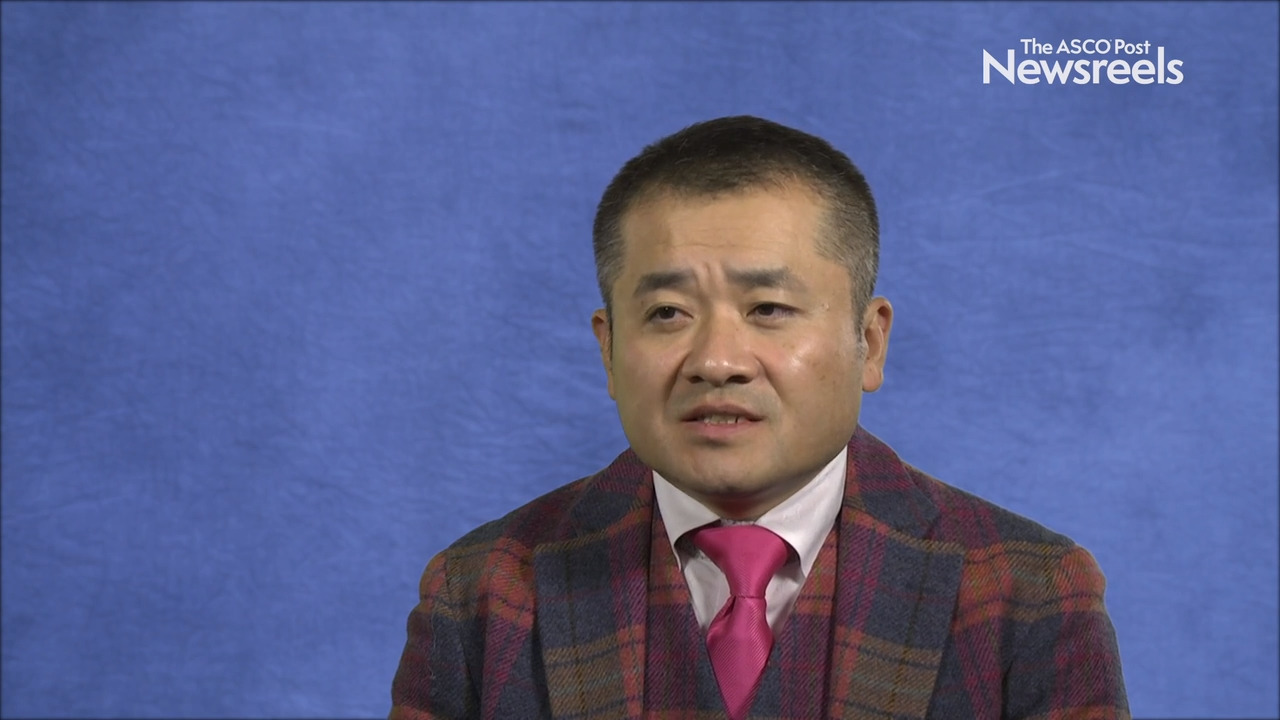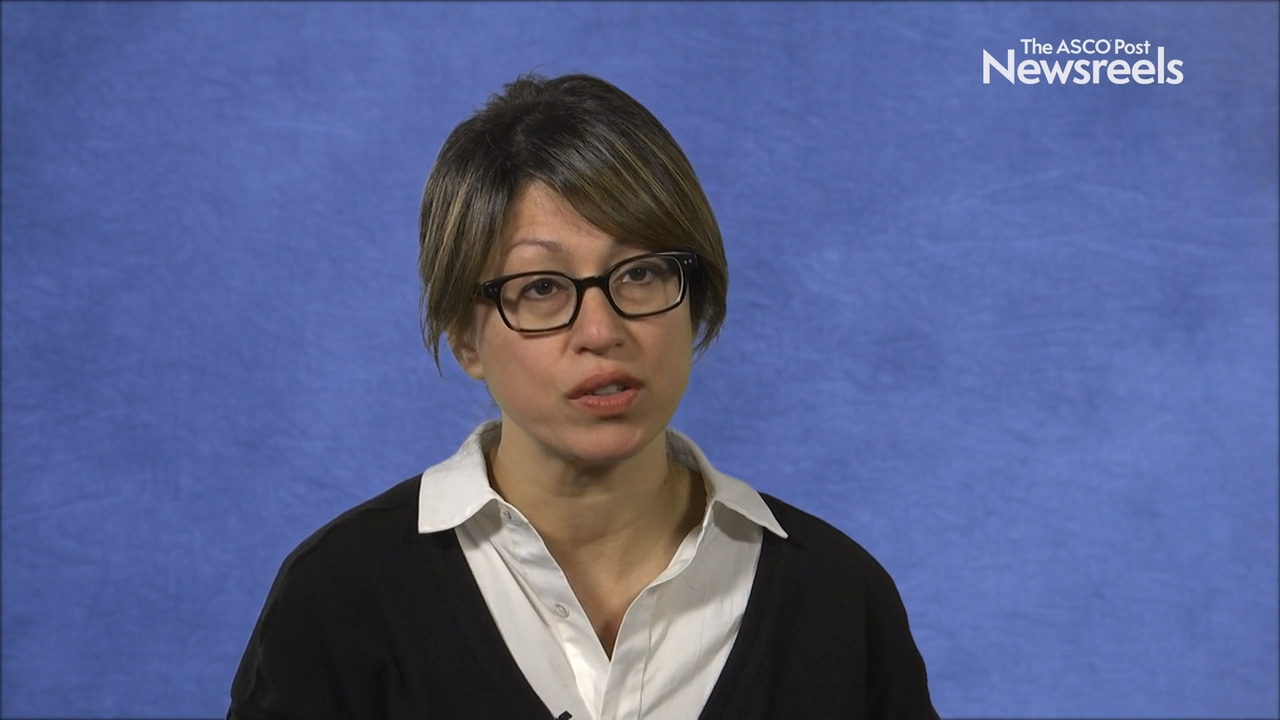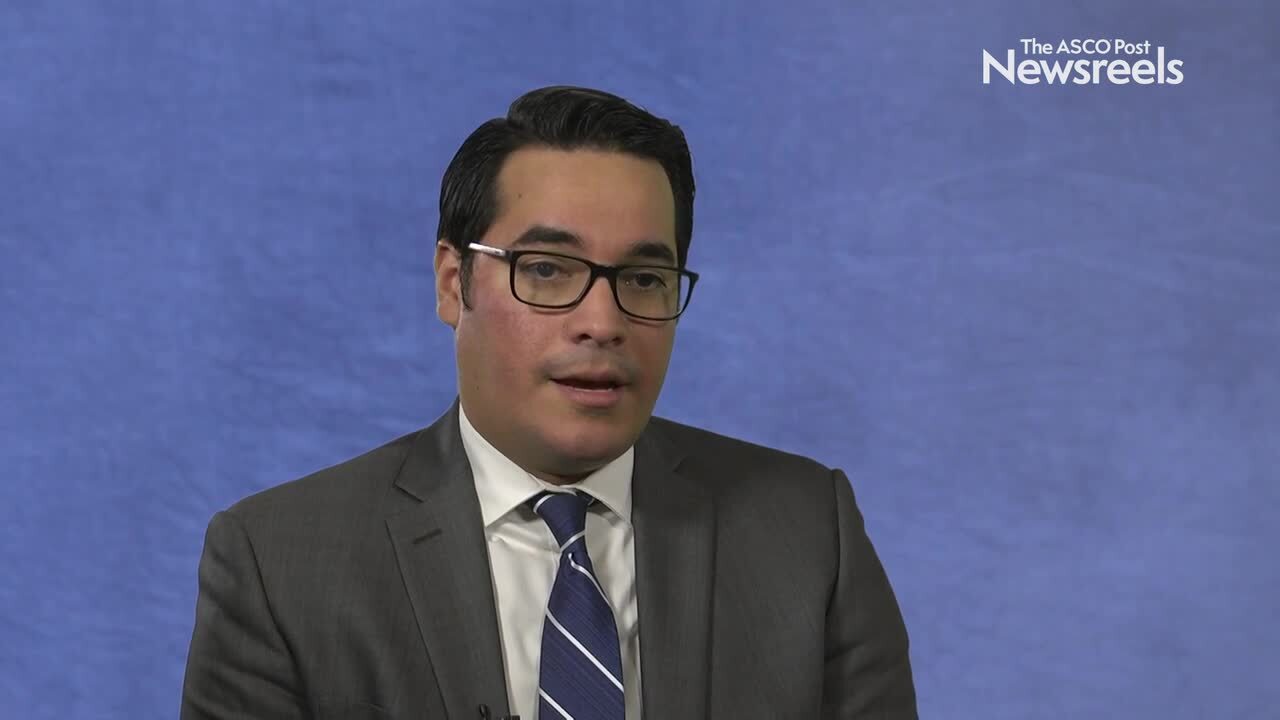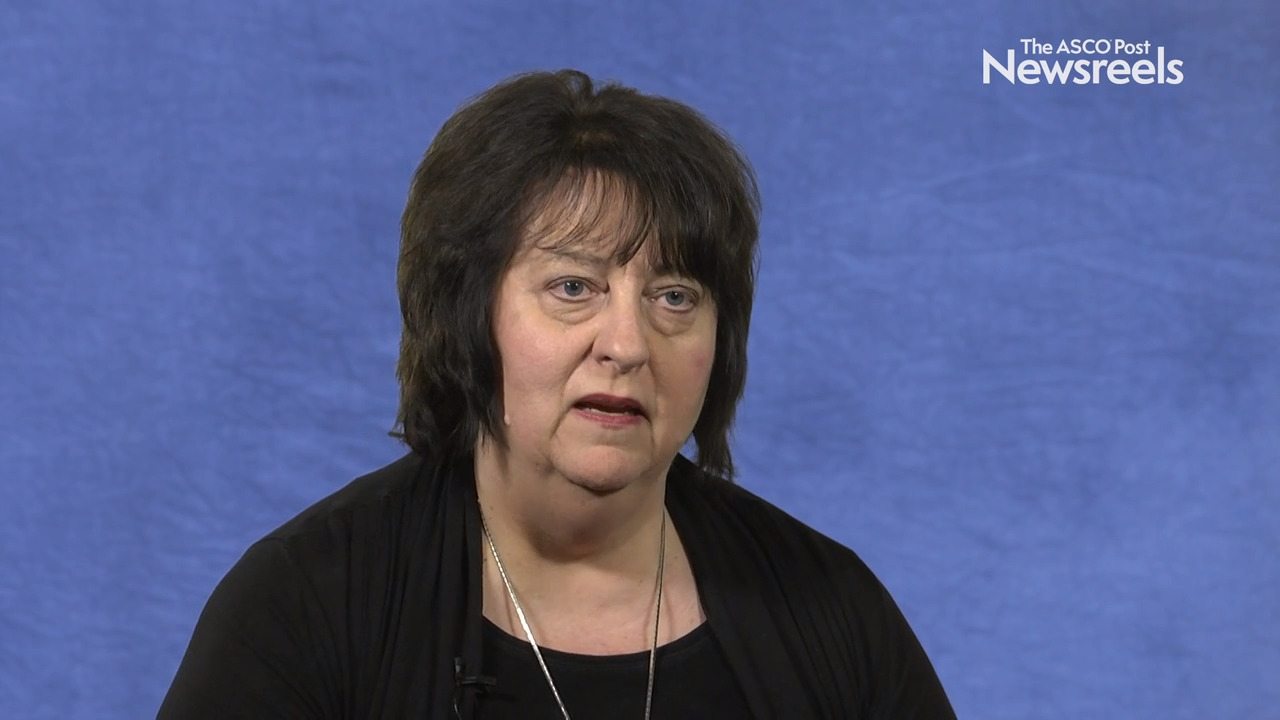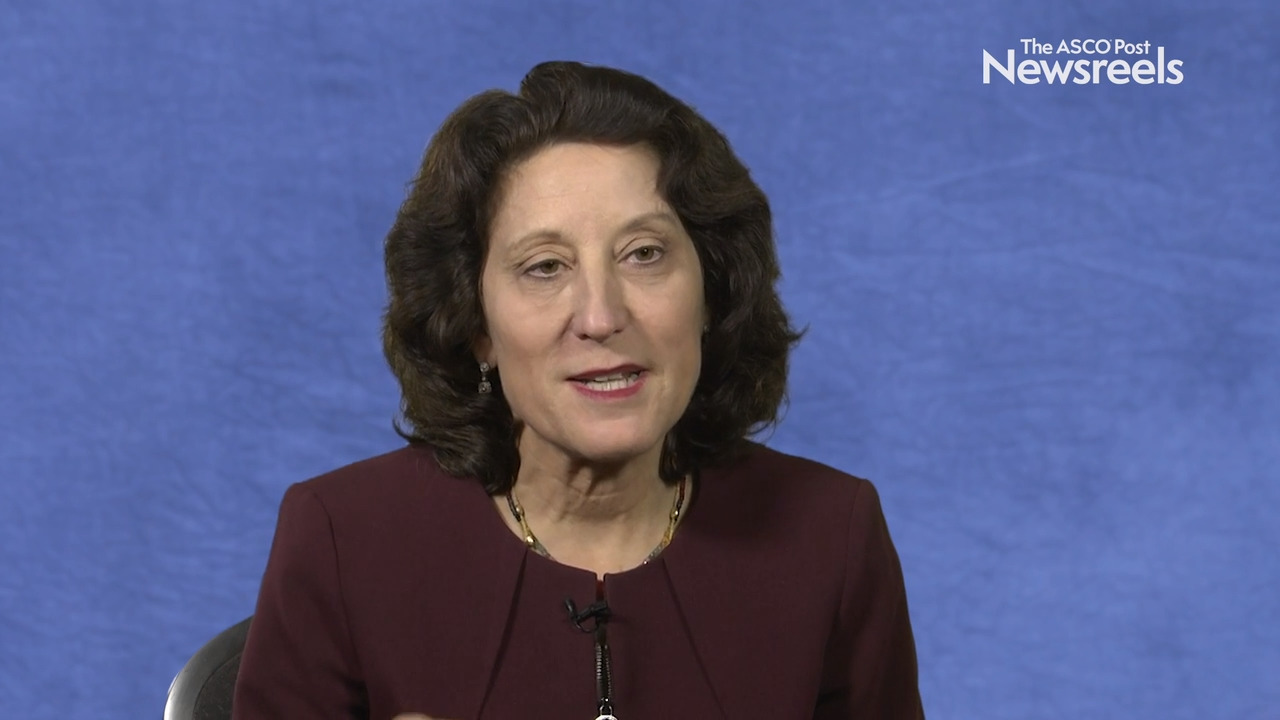Allison Magnuson, DO, on Older Patients With Breast Cancer: A New Tool to Help Guide Treatment Decisions
2018 San Antonio Breast Cancer Symposium
Allison Magnuson, DO, of the University of Rochester Strong Memorial Hospital, discusses the development of a chemotherapy toxicity risk score that is associated with dose reduction as well as reduced respiratory distress and fewer hospitalizations (Abstract GS6-04).
Shoichiro Ohtani, MD, PhD, of Hiroshima City Hiroshima Citizens Hospital, discusses study findings on extending anastrozole to 10 years, which led to higher rates of disease-free survival and distant disease–free survival (Abstract GS3-04).
Shanu Modi, MD, of Memorial Sloan Kettering Cancer Center, discusses study findings from a large phase I study on trastuzumab deruxtecan in patients with low HER2-expressing breast cancer (Abstract P6-17-02).
Roberto A. Leon-Ferre, MD, of the Mayo Clinic, discusses study findings on the effectiveness of oxybutynin in decreasing the frequency and severity of hot flashes (Abstract GS6-01).
Kathy S. Albain, MD, of Loyola University Stritch School of Medicine, discusses study findings on race, ethnicity, and patient outcomes in hormone receptor–positive, HER2-negative, node-negative breast cancer (Abstract GS4-07).
Hope S. Rugo, MD, of the University of California, San Francisco, discusses how treatment with a lower dose of palbociclib (100 mg vs 125 mg) in combination with fulvestrant or tamoxifen is associated with a lower rate of high-grade neutropenia (Abstract PD2-12).
